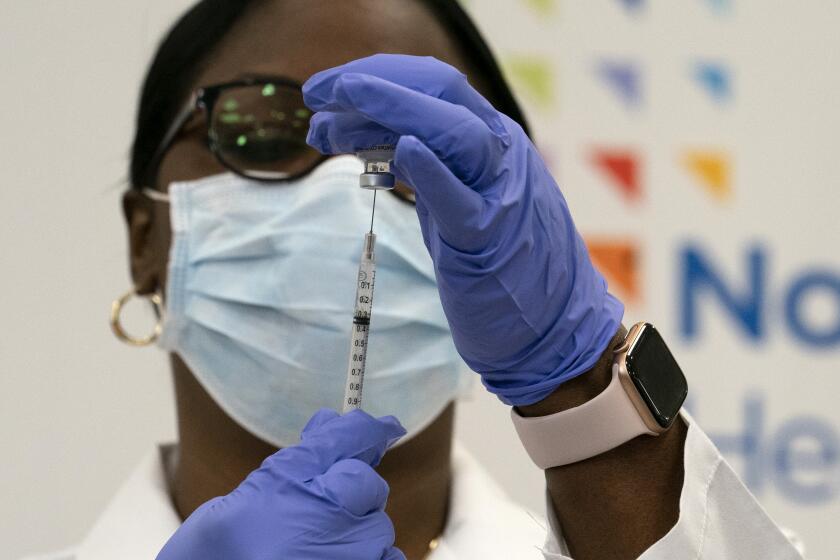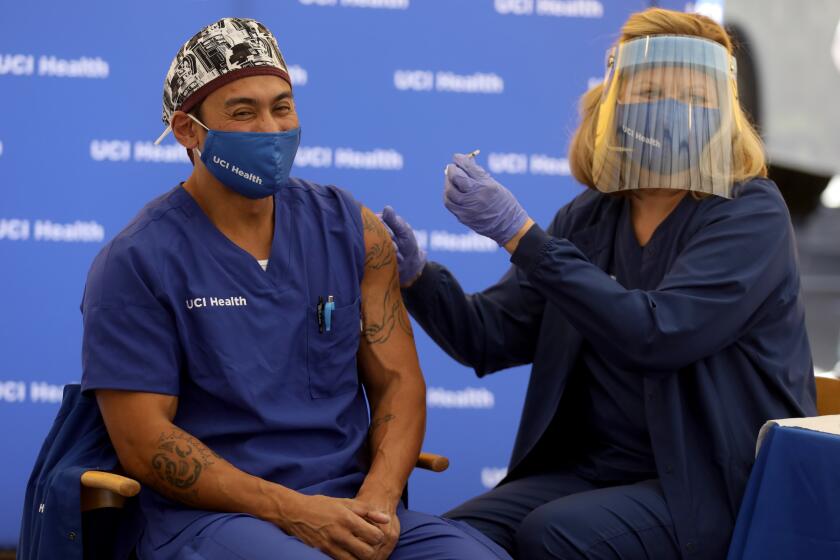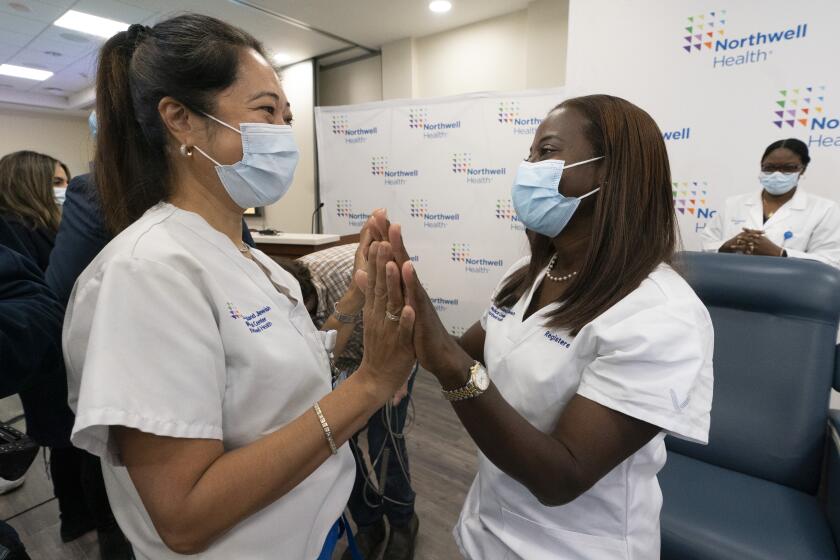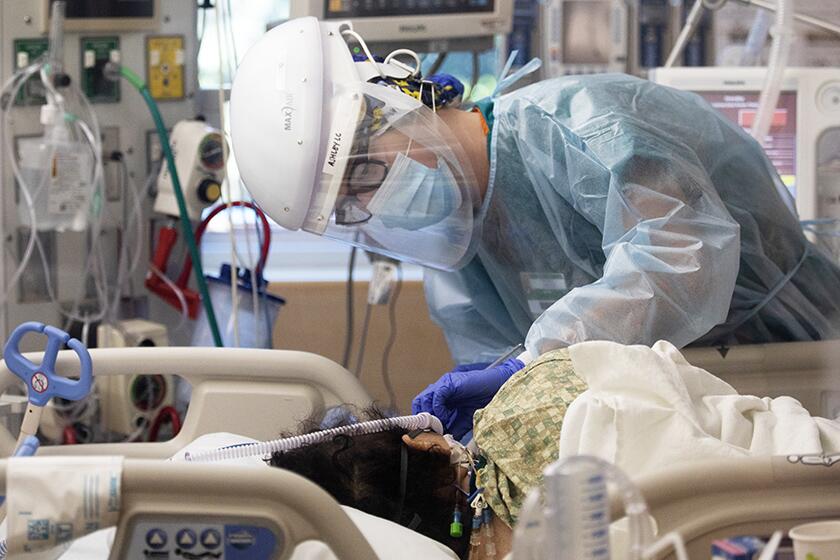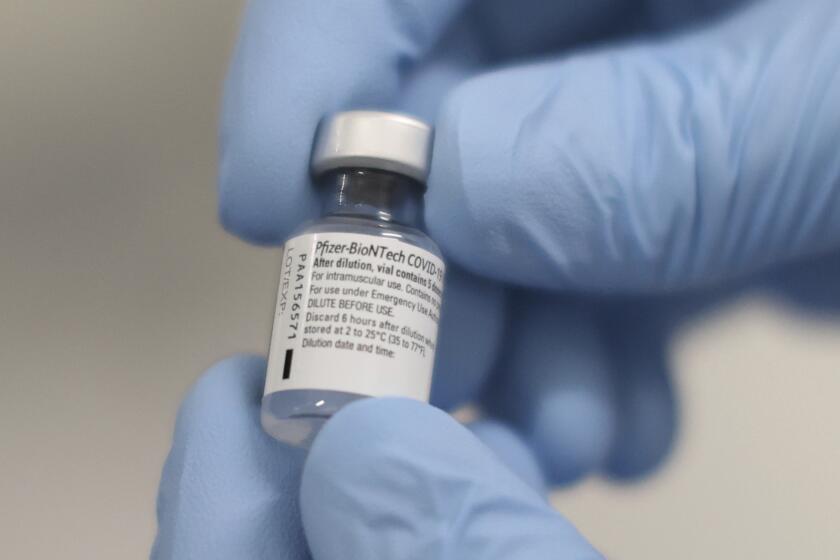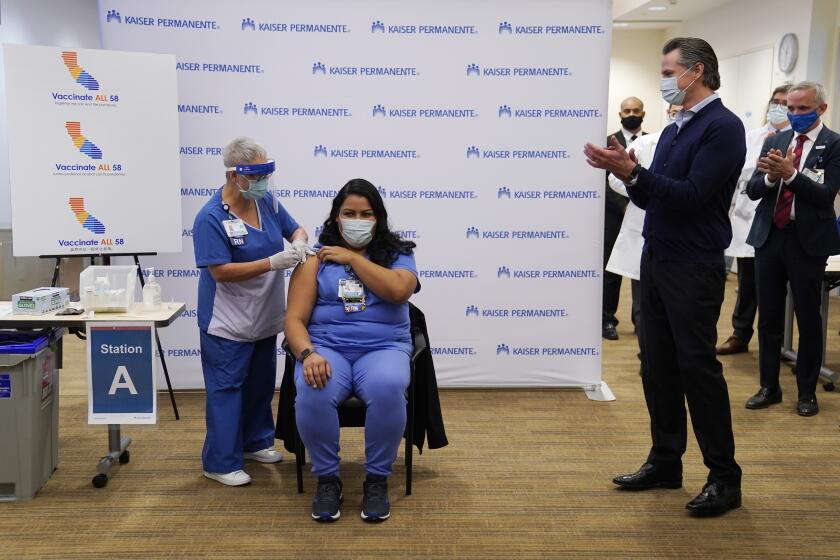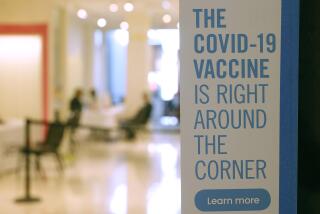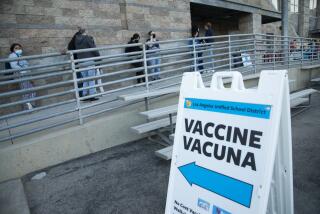The wealthy scramble for COVID-19 vaccines: ‘If I donate $25,000 ... would that help me?’
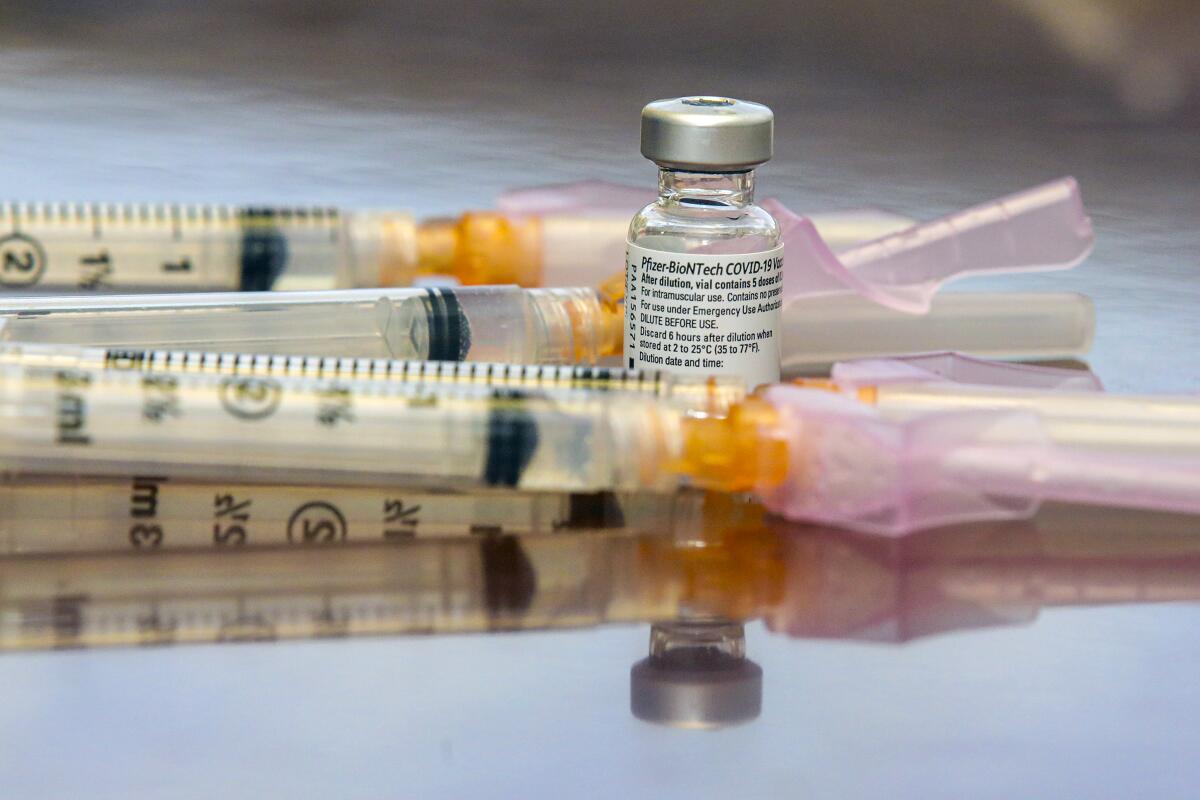
- Share via
They’re offering tens of thousands of dollars in cash, making their personal assistants pester doctors every day, and asking whether a five-figure donation to a hospital would help them jump the line.
The COVID-19 vaccine is here — and so are the wealthy people who want it first.
“We get hundreds of calls every single day,” said Dr. Ehsan Ali, who runs Beverly Hills Concierge Doctor. His clients, who include Ariana Grande and Justin Bieber, pay between $2,000 and $10,000 a year for personalized care. “This is the first time where I have not been able to get something for my patients.”
With the first doses in short supply, California has laid out a strict order of vaccinations based on need and risk: Healthcare workers and nursing home residents, then essential workers and those with chronic health conditions, then, finally, everyone else.
But to those with power, money and influence, rules can always be bent. California’s stern messaging about serving the neediest first hasn’t stopped the rich from trying to leap ahead of teachers, farmworkers and firefighters.
Dr. Jeff Toll, who has admitting privileges at Cedars-Sinai Medical Center, one of the first hospitals to stock the vaccine, recalled a patient asking: “If I donate $25,000 to Cedars, would that help me get in line?’” Toll said no.
The COVID-19 vaccine developed by Pfizer and BioNTech is now in California and could be distributed within hours.
Watchdogs have been warning that the COVID-19 vaccine’s initial scarcity could create a thriving black market, particularly if well-connected people in the healthcare industry skim off a few doses here and there for friends, family or the highest bidder.
But getting earlier access to the shot may not even require much backroom deal-making. Some wealthy patients may get the shots sooner than the average person because they’re members of exclusive healthcare groups that offer the kind of high-quality, primary care most Americans can’t afford.
Those patients are already on waiting lists with concierge doctors who charge as much as $25,000 a year for 24-hour access to top-notch care, which includes working to get their clients vaccinated as soon as it’s available.
The COVID-19 vaccine continues to roll out throughout Southern California.
Concierge practices are fielding frantic, repeated phone calls from well-heeled clients and their assistants. They’re busy assembling lengthy patient files with medical histories and potential COVID-19 risks.
And they’re snapping up expensive, ultra-low temperature freezers, which are in short supply, to store the Pfizer and BioNTech vaccine, which must be kept at minus 94 degrees Fahrenheit.
Doctors in boutique practices say they’ll adhere to public health guidelines in determining who gets priority. But being on a waiting list at a practice that has special freezers and other high-quality resources means you’re already near the front of the line once the supply opens up.
Some boutique practices have already applied to California health officials for approval to store and administer the vaccine at a time when the typical primary care doctor has little idea when and how their patients will get access to the shots.
“As soon as we heard about the vaccine coming to market, we started looking for freezers,” said Andrew Olanow, co-founder of Sollis Health, a concierge practice with clinics in New York, the Hamptons and Beverly Hills.
COVID-19 vaccine distribution has begun. There are no exact timelines yet, but here’s a general idea of when you may be able to get it.
Six weeks ago, Sollis Health placed an order for six ultra-low temperature freezers at about $5,000 each. They’re due to arrive next month.
After Sollis reserved their freezers, he said, several “larger governmental orders” sucked up much of the remaining supply, meaning wait times will be longer for clinics just ordering now.
Representatives for Pfizer and Moderna, whose vaccine is expected to be authorized this week, said doctors and private citizens cannot buy doses from them yet. The U.S. government is controlling the allocation of doses to all 50 states.
ICU availability in Southern California at 0%, and the crisis is expected to get worse, officials warn.
Until the vaccine is available to nongovernmental buyers, concierge doctors are in the unusual position of telling their demanding patients that, for now, they will just have to wait.
That hasn’t stopped patients from trying.
“People are willing to pay tens of thousands of dollars,” said Toll, the doctor with admitting privileges at Cedars-Sinai. His private concierge practice in Los Angeles starts at $5,000 a year and can go as high as $25,000.
Doctors fielding these kinds of requests, he said, have to be comfortable telling rich, powerful people “no,” similar to when they ask for inappropriate medications. Toll tells his patients that those designated as most at-risk by public health officials should get it first.
“We’re governed by the Hippocratic oath, the responsibility to provide care for the people who need it most,” said Dr. Abe Malkin, the founder of Concierge MD LA, a house-call medical service that charges up to $750 per month. “But at the same time, there’s obviously going to be gray areas based on individual patients’ needs.”
COVID-19 vaccines are now being administered to healthcare workers in the U.S. What are your questions about the timeline, the safety or the science?
Guidelines that prioritize people who work in essential industries, have underlying health conditions, or are older than 65 are massive gray areas. In California alone, nearly 12 million people — two-thirds of the state workforce — work in essential industries.
That ambiguity creates opportunities for the well-connected to argue that an underlying health condition or a C-suite level position at an essential company should push them toward the front of the line, said Glenn Ellis, a bioethicist and a visiting scholar at Tuskegee University.
“With enough money and influence, you can make a convincing argument about anything,” Ellis said. But unlike lobbying for a better table at a restaurant or a better seat at a Broadway show, he said, taking a vaccine dose that was meant for an essential worker could cost someone their health or their life.
The pattern is familiar in a state where Hollywood stars and Silicon Valley executives are accustomed to getting their way. Gov. Gavin Newsom, who made his own blunder by dining without a mask at The French Laundry in Napa Valley, has warned that California will be “very aggressive in making sure that those with means, those with influence, are not crowding out those that are most deserving of the vaccines.”
“Those that think they can get ahead of the line and those that think because they have resources or they have relationships that will allow them to do it ... we also will be monitoring that very, very closely,” Newsom said.
Alison Bateman-House, an assistant professor of medical ethics at NYU, said not everyone plying their connections for a shot is doing it out of purely selfish motivation. Some people “are not a top priority for vaccination, but have what they consider to be a pressing need,” she said, including the families of immuno-compromised relatives who may otherwise wait months to be immunized.
“Every system has a weak link somewhere, and I’m sure someone is going to find it and someone’s going to exploit it,” Bateman-House said. “The question is: Where’s that weak link going to be, and how quickly will it be identified and stopped?”
Taryn Vian, a health sector anti-corruption expert who teaches at the University of San Francisco, said powerful people could gain early access to the vaccine not by using bribery or coercion, but through more subtle means, like making requests to similarly powerful friends.
For most people, side effects should be mild and may include flu-like symptoms for a day or two. People with severe allergies should consult a doctor.
A friend of the leader of a pharmaceutical company, medical distributor, hospital or nursing home could ask if there are any extra doses available, and the leader could ask their assistant to see if they could help. The assistant might then interpret the request as a demand to misappropriate a dose, Vian explained.
“V.I.P. treatment is very common” in the healthcare industry, Vian said.
That’s already happening in California, doctors say, particularly in the entertainment world. Celebrities and executives aren’t badgering their doctors themselves but are instructing their assistants to find out how they can get better treatment.
“Their people are calling me literally every day,” said one doctor who requested anonymity to speak frankly about their clients, many of whom work in Hollywood. “They don’t want to wait. They want to know how they can get it more quickly.”
More to Read
Sign up for Essential California
The most important California stories and recommendations in your inbox every morning.
You may occasionally receive promotional content from the Los Angeles Times.
